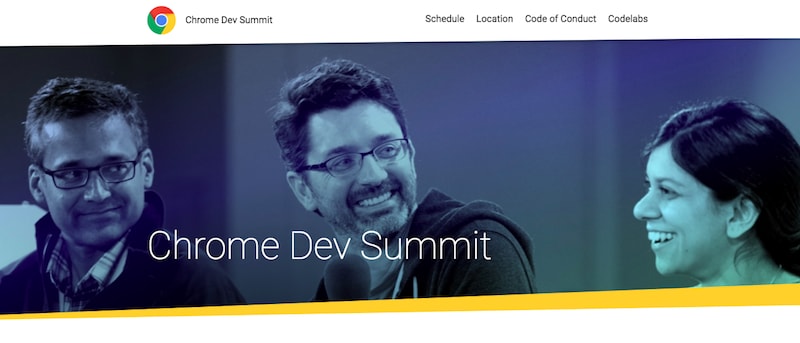It is a big day. When I think about the Web community and ecosystem I often think of the cross over to democracy. The overlap happens in real terms this year as the election happens on the same week as Chrome Dev Summit, which kicks off on Thursday (check the live stream if you aren't coming!).
I have always enjoyed the summit as it feels like home. It is a place for the world of user space to meet with kernel space. Browser vendors meet up with web developers and framework authors, all in the pursuit of a better future. Thus: #StrongerTogether.
I can't help but reflect on the last year. At this time last, I was in stealth mode as I joined the summit in Mountain View and watched the coming out party for Progressive Web Apps. Alex and Frances had coined the term the summer before but this is where we saw the first real showcase at scale: Flipkart.
At first blush it was a surprising flag bearer. The Indian ecommerce company that had shut down their website in favor of native. Yet here they were, showing us the start of their journey back. Ironically, the burning down of the site made room, like a forest fire, and fast forward to today and we seem them continue to push the boundaries.
We have seen a series of great PWAs from emerging markets. Some questioned this but I find it intriguing. With Ajax the exemplars were those such as Google Maps, Gmail, and Google Suggest. Companies born on the Web without the baggage of native desktop.
Isn't it fitting that the first PWAs were from areas of the world that are truly mobile native, such as India, Indonesia, and Nigeria? Areas where many of their users came online through mobile, and where there may not be the baggage of legacy desktop sites? The constraints of these areas, along with the lack of baggage, can be strong enablers, and some of these factors have created the right environment for change.
What does it mean to build mobile native? For me, it starts with the core of the experience that you are building. For a long time the mobile experiences on the web were strapped onto the core of a desktop site. The very first versions were even using scraping proxy techniques a la UsableNet or MoovWeb. As a community we worked out responsive design and managed to merge to a world that supported both in largely one codebase.
This wasn't always enough though. We have only recently gained the capabilities to really build a great mobile solution as the core product, which then expands to support desktop. In a world where mobile is growing so much faster than desktop, it is important to build this way.
Don't get me wrong though, this doesn't mean that we should ignore the world of the desktop. Far from it. I have even gone so far to pen an Ode to the Desktop and I mean it. One of the great things about the Web is that you can have your cake and eat it too if you are willing to put in the effort.
I don't know about you, but I sometimes find myself using a desktop web app and wishing that the team behind it hadn't been refocused on a native app. You know the ones, the productivity apps that you still use mainly on desktop yet feel like they haven't been touched in some time. Then you go to the mobile versions and see plenty of new features, but you don't want to have to do creative work on a small device.
I can't totally blame the companies or teams. We were in the land of the gold rush and we didn't know how much gold was in them hills. At this point though we have enough data to know that while mobile is growing fast, there is still plenty of usage for the desktop usage, and that it is time to reinvest in the web (including mobile web).
That brings us back to the end of 2016. A year after the “Flipkart CDS we get back to Chrome Dev Summit 2017. What are you going to see this year? What's new? This year we get to see the turn around and where people HAVE reinvested. There are companies that you would never expect to have explored the Web. Companies who work on apps that need the capabilities of the device: location, mapping, offline, great experiences…. and they are finding they can deliver this through the Web, giving them reach.
This CDS shows us growth of PWAs at scale all over the world, very much including the West. It turns out that the constraints of the emerging markets such as network performance and low end device usage are great constraints to have. LiFi is everywhere, and even our best devices are crippled due to heat and battery capacity.
I can't wait to see the tribe show up in person, this time in SF, as well as online for the livestream and videos. The community has much to be proud of, but there is still much work to do.
Today we vote in the US, and later in the week I hope to see see you at Chrome Dev Summit, if you can catch me! :)





Top comments (0)